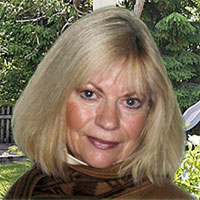How Synchronizing with Lunar Energy Can Foster Change in Your Life
 The Moon may seem calm and gentle in the nighttime expanse, but don’t underestimate her. Her impact on our existence runs profound.
The Moon may seem calm and gentle in the nighttime expanse, but don’t underestimate her. Her impact on our existence runs profound.
Many of us can feel her influence, facing everything from disturbed sleep to emotional surges, even when the reasons elude us. Her cycles are timeless, her rhythm everlasting, and her murmurs can lead us towards deep inner peace if we choose to heed them.
Since the beginning of civilization, the Moon has been a symbol of mystery, veneration, and deep spiritual ties for humanity. Across various cultures and eras, she has been revered as a deity, observed as a celestial navigator, and respected through rituals that align with her cycles.
Ancient cultures such as the Babylonians, Egyptians, and Greeks diligently studied her trajectories, linking them to oceanic tides, fertility, and even the flow of time.
The lunar calendar, still observed in numerous traditions today, emphasizes her cycles, influencing religious practices such as Ramadan and the Lunar New Year.
Her phases—waxing, full, waning, and new—have given rise to numerous traditions centered on transformation and renewal. The Full Moon, especially, is viewed as a period of intensified energy, enlightenment, and manifestation.
Regarding personal and spiritual well-being, the Moon transcends being just a celestial object. She embodies a divine force and acts as a sacred reflection of our inner energetic rhythms. By attuning ourselves to her cycles, we can access a deeper connection to ourselves, our planet, and the cosmos.
May the sun energize you during the day, may the moon gently refresh you at night…may you tread softly through the world and appreciate its beauty all your days ~ Apache Blessing
The moon symbolizes the divine feminine. She is fluid, intuitive, and perpetually evolving. She waxes and wanes, transitions into shadow, and shines in fullness. This tide of change reflects the natural cycles within us, particularly in our emotional and energetic dimensions.
She oversees the subconscious, dreams, intuition, and the realm of emotions. Her essence is yin: gentle yet impactful, serene yet deeply transformative. By aligning with her phases, we don’t lose control; we reclaim a more genuine rhythm that fosters balance, introspection, and inspired action.
Your Inner Moon & Sun
In yogic teachings, the human form is a microcosm of the universe. Just as the Sun and Moon travel across the sky, their energies flow within us through two primary channels: Ida and Pingala.
Ida – The Lunar Channel: Flows along the body’s left side. It signifies feminine energy that is cool, receptive, intuitive, and present. It regulates our emotions and the parasympathetic nervous system, facilitating rest and renewal.
Pingala – The Solar Channel: traverses the right side. It embodies masculine energy that is dynamic, rational, vibrant, and outwardly focused. Pingala governs the sympathetic nervous system and is linked with drive, structure, and action.
These two energy flows spiral around the spine, converging at the chakras and circulating through a central channel called the Sushumna. When Ida and Pingala are harmonized, energy can rise through the Sushumna, awakening the coiled spiritual energy, Kundalini, at the spine’s base.
We feel displaced when one energy predominates, whether it’s solar overactivity or lunar sluggishness. This imbalance can manifest as insomnia, emotional instability, burnout, or disconnection. Yet, balance is always attainable.
Nadi Shodhana, known as alternate nostril breathing, is a sacred practice for balancing Ida and Pingala.
☯️ Sit comfortably with your spine erect.
☯️ Gently close your right nostril and inhale through the left.
☯️ Close the left nostril and exhale through the right.
☯️ Then, inhale through the right nostril, close it, and exhale through the left nostril.
Repeat for several rounds, ideally three full cycles. This straightforward but potent practice calms the mind, soothes the nervous system, and harmonizes your energy channels.
For a complete energetic reset, complement this breathing exercise with meditation, mantra chanting, or gentle moon salutations.
It waxes and wanes. Everything flourishes because of the moon. Everything matures due to the sun. And all is conceived thanks to the balance of these two polarities of masculine and feminine, sun and moon ~ Yogi Bhajan
Living By The Lunar Cycle
The Moon’s passage through its phases serves as a sacred roadmap. It guides us in determining when to act, reflect, release, and renew. Each phase possesses a particular spiritual emphasis:
☽ New Moon: A moment of profound stillness and fresh starts. Set intentions, visualize aspirations, and rest in potential.
☽ Waxing Crescent: The seed of your intention commences to grow. Engage in inspired yet gentle actions. Foster hope.
☽ First Quarter: Obstacles may present themselves. This phase teaches resilience, decision-making, and the bravery to move ahead.
☽ Waxing Gibbous: Hone your plans and intentions and gear up for illumination.
☽ Full Moon: A celestial spotlight. Emotions reach their zenith. Manifestations flourish. Celebrate, release, and share your truth.
☽ Waning Gibbous: Dedicate time to reflecting on your insights. Share your wisdom. Embrace gratitude and humility.
☽ Last Quarter: Release. Break old habits, sever connections, and let go of what has outlived its purpose.
☽ Waning Crescent: Return to rest. Integrate lessons learned and rejuvenate your energy before the next cycle begins.
By flowing with these phases, you can reclaim a natural rhythm that honors both action and rest, clarity and mystery.
The Moon, The Zodiac & Your Body
Each month’s Full Moon takes place in a specific zodiac sign, with each sign resonating with various physical, mental, emotional, and spiritual themes. This is a powerful moment for reflection, release, and embodying the higher vibrations associated with the lunar influences of that sign.
Kundalini yoga asserts that the Waxing Moon increases pressure on corresponding organs, peaking during the Full Moon. When balanced through yoga, breathwork, and conscious living, this pressure becomes a purifying energy. Conversely, if neglected, it may emerge as emotional unrest, fatigue, or imbalance.
Here’s the impact each Full Moon may have on you:
♈ Full Moon in Aries
Organs: Head, brain, eyes
Influence: Ignites courage, independence, and action. Emotions may intensify, revealing tendencies to be impulsive or excessively reactive. It’s an opportunity to balance instinct with reflection and channel anger into constructive motivation.
♉ Full Moon in Taurus
Organs: Throat, neck, thyroid
Influence: Anchors you in your senses and emphasizes your values. This moon may prompt discussions about security, self-worth, or resistance to change. Perfect for rituals focused on beauty, abundance, and empowerment of voice.
♊ Full Moon in Gemini
Organs: Lungs, shoulders, and arms
Influence: Energizes communication, thought, and social interactions. Depending on your state of mind, it can lead to either mental overstimulation or clarity. Journaling, speaking your truth, and deep breathing can balance this airy energy.
♋ Full Moon in Cancer
Organs: Chest, breasts, stomach
Influence: Stirs profound emotional depths, as well as themes surrounding home, motherhood, and safety. You may feel sensitive or nostalgic. It’s an ideal time for self-nurturing and acknowledging your emotional needs.
♌ Full Moon in Leo
Organs: Heart, spine, upper back
Influence: Shines a light on creativity, confidence, and matters close to the heart. You might feel driven to express yourself openly. Now is the moment to move past your fear of judgment and radiate from your authentic essence.
♍ Full Moon in Virgo
Organs: Digestive system and intestines
Influence: Calls for purification, structure, and healing through service. This moon allows you to spot details, make necessary adjustments, and eliminate energetic clutter. It is perfect for rituals involving cleansing and body awareness.
♎ Full Moon in Libra
Organs: Kidneys, lower back, skin
Influence: Centers on relationships, balance, and inner harmony. Past patterns in relationships may emerge. Now is the right moment to let go of codependency and strive for equality and beauty in all life aspects.
♏ Full Moon in Scorpio
Organs: Reproductive system, bowels
Influence: This profoundly transformative moon reveals hidden emotions, power struggles, and fears. Sexual energy and emotional intensity may heighten. Utilize this period for deep release, emotional healing, or energetic rebirth.
♐ Full Moon in Sagittarius
Organs: Liver, hips, thighs
Influence: Fuels the quest for truth, freedom, and adventure. You might yearn for growth or question your beliefs. It’s an excellent opportunity to cast off limiting mental frameworks and embrace a broader spiritual perspective.
♑ Full Moon in Capricorn
Organs: Bones, knees, and joints
Influence: Highlights your career, structural ambitions, and long-term objectives. You could feel pressured to achieve or face outdated aspirations. Let go of what no longer resonates with your soul’s direction, honoring your inner authority.
♒ Full Moon in Aquarius
Organs: Ankles, calves, circulation
Influence: Brings insights and innovations, as well as a desire for connection with humanity. You may feel more emotionally detached or inspired to contribute to the collective. It’s an ideal time to break away from conformity and embrace your individual path.
♓ Full Moon in Pisces
Organs: Feet, lymphatic system
Influence: Intensifies intuition, compassion, and spiritual sensitivity. This moon dissolves borders and can obscure reality. It’s a powerful moment for surrender, forgiveness, and inner reflection.
Monitoring these lunar-zodiac links can grant you a deeper understanding of your physical and spiritual needs throughout the month.
Living in harmony with the Moon entails gracefully and respectfully yielding to the cosmic currents that govern existence itself. It’s a practice of sacred alignment, not a loss of power. For many, this journey feels like returning home to the body, spirit, and the broader web of life.
You don’t have to possess all knowledge to start. Simply begin by being present. Observe tonight’s moon. Notice your feelings. Start journaling, breathing, and moving with intention. Let the Moon lead you toward your highest good and best life!
|
Lucinda is a highly trained Intuitive and Empath, residing in a picturesque village in North Yorkshire, England. She has the unique ability to comprehend a client’s emotional pain and has faced numerous challenges throughout her life, which have only made her stronger! It’s both her purpose and delight to assist those in distress. And whenever she needs a bit of guidance, her Guides are always present to aid her development and provide clear insights for her clients. Prediction has always been a reliable tool she could count on to foresee events accurately, but Lucinda also draws on her expertise in Dream Interpretation, Numerology, Angel Cards, Law of Attraction, and Life Coaching to offer comprehensive and detailed solutions to any dilemma. A member of AMORC and Beyond Freedom Evolution, she provides inspiration, education, and individual support for spiritual growth. If you seek answers or wish to manifest your desires, you can find Lucinda at PsychicAccess.com. |
The moon has historically been linked with transformation and evolution. Its phases symbolize the cyclical aspect of existence, with each phase embodying a distinct stage of growth and renewal. By aligning with lunar energy, you can tap into this formidable force and instigate change in your life.
One primary method of attuning to lunar energy is to observe its various phases. Each phase possesses its own distinctive energy and can be utilized to manifest varied aspirations and intents. For instance, the new moon signifies a phase of new beginnings and intention-setting, while the full moon represents culmination and release. By tuning into these energies and engaging with them, you can harness the moon’s power to foster positive changes in your life.
Another effective approach to aligning with lunar energy is to weave moon rituals into your daily practice. These rituals can range from lighting a candle or meditating under moonlight to creating an elaborate sacred space for moon ceremonies. By honoring the moon in such a manner, you can deepen your rapport with its energy and welcome transformation into your life.
Engaging with lunar energy can also enhance your connection to your intuition and inner wisdom. The moon is frequently associated with femininity and the subconscious, making it a powerful ally for accessing your intuition and inner guidance. By synchronizing with lunar energy, you can cultivate a heightened sense of self-awareness and trust in your instincts, resulting in greater clarity and insight across all facets of your life.
Beyond personal transformation, alignment with lunar energy can positively influence your relationships and environment. The moon serves as a symbol of unity and interconnectedness, reminding us of our bond with all living beings and the natural order. By connecting with lunar energy, you can nurture a stronger sense of compassion and empathy for others, as well as a deeper appreciation for the beauty and abundance present in the world around you.
In summary, aligning with lunar energy can lead to significant transformation in every aspect of your life. By tuning into the cycles of the moon, incorporating moon rituals into your daily routine, and reconnecting with your intuition and inner wisdom, you can access the moon’s immense power to manifest your goals, enrich your relationships, and foster a more harmonious and fulfilling existence. So why not begin attuning to lunar energy today and witness the transformative effects it may bring to your life? Continue reading

















